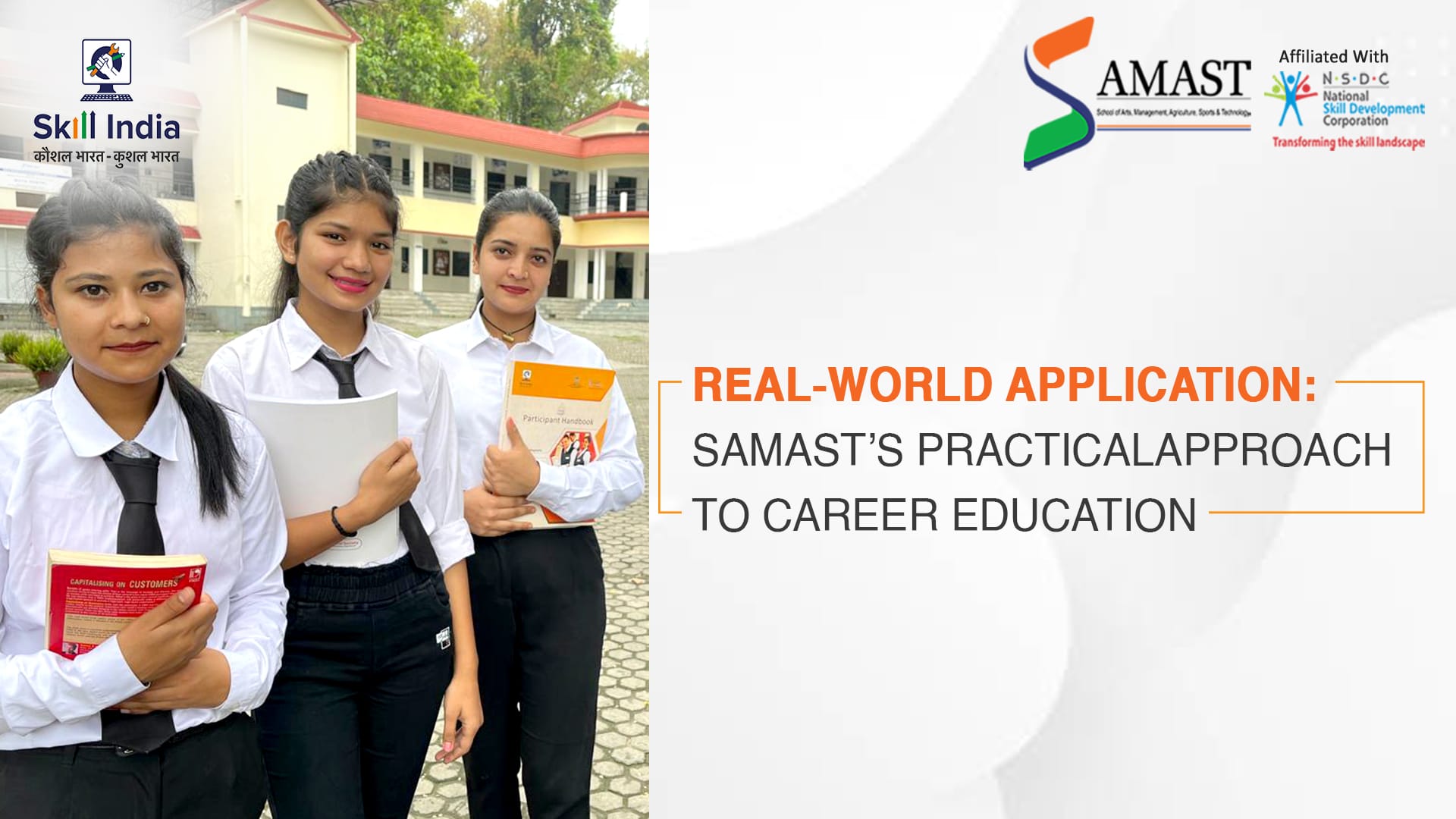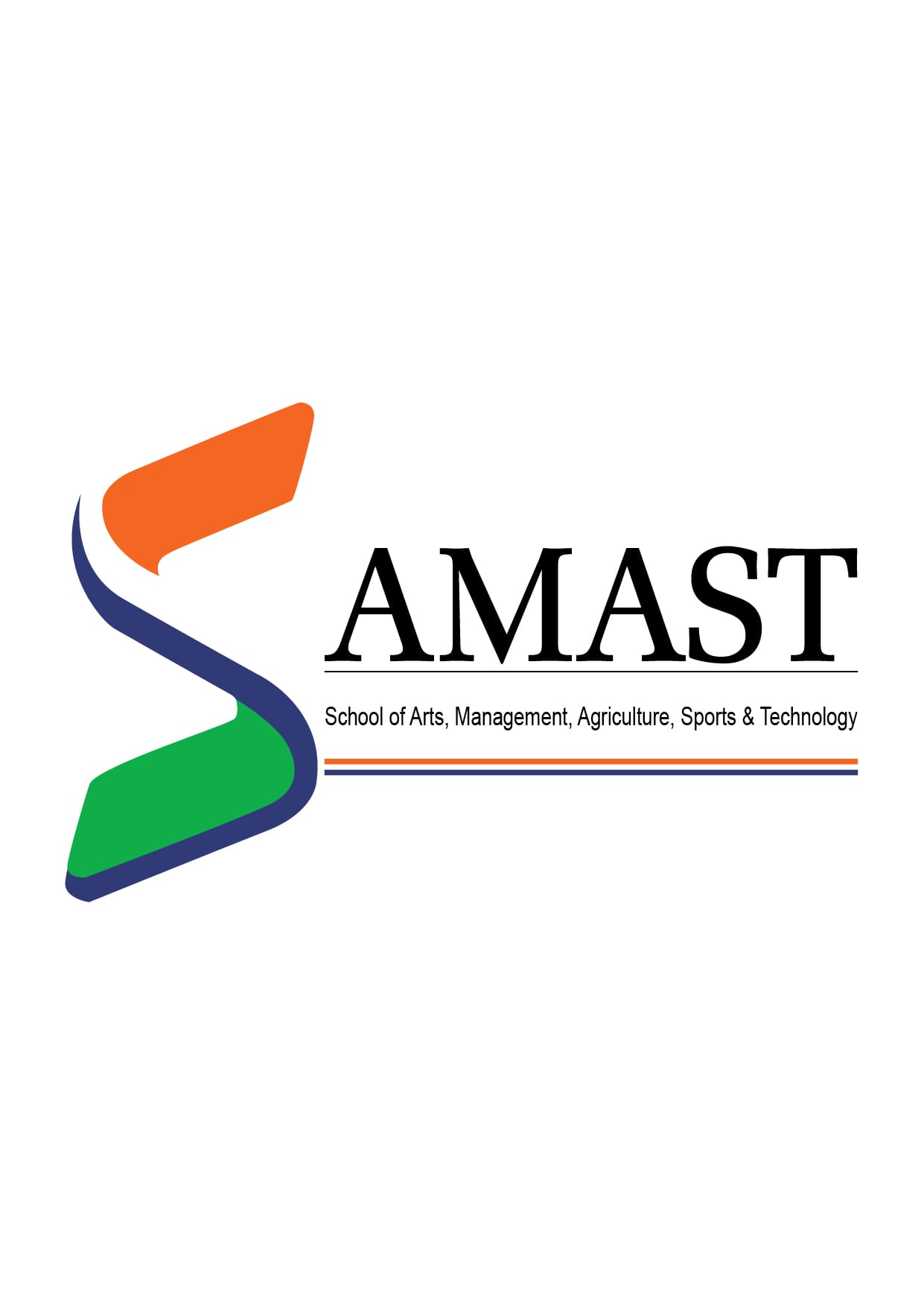
Introduction: The Need for Practical Career Education
In an era where the job market is more competitive than ever, traditional education often falls short of preparing individuals for real-world challenges. Employers value candidates who can transition seamlessly from training to the workplace. Recognizing this gap, SAMAST offers a practical approach to career education, ensuring students gain hands-on experience and industry-relevant certifications to thrive in professional environments.
Why Practical Education Matters
Practical education focuses on applying theoretical knowledge to real-world situations. This approach helps students:
- Develop Job-Ready Skills: Practical training emphasizes skills that are directly relevant to workplace tasks.
- Gain Confidence Through Experience: Real-world application builds confidence, enabling students to handle challenges effectively.
- Enhance Employability: Employers prefer candidates who have proven their abilities through hands-on training.
SAMAST’s Practical Approach: Bridging the Gap Between Theory and Practice
SAMAST’s career education programs are carefully designed to integrate practical learning with theoretical knowledge. Here’s how:
1. Hands-On Training Modules
SAMAST incorporates hands-on projects, simulations, and roleplay into its courses. These activities mirror workplace scenarios, allowing students to develop the skills they need to succeed in their chosen fields.
2. Industry-Aligned Curriculum
Courses are developed in collaboration with industry experts to ensure they meet current market demands. This alignment ensures students learn skills that are immediately applicable.
3. Experienced Trainers and Mentors
SAMAST’s trainers bring years of industry experience, providing students with insights into real-world challenges and best practices.
4. Integrated Soft Skills Training
Alongside technical skills, SAMAST emphasizes soft skills like communication, teamwork, and problem-solving, which are critical for professional success.
Key Programs Highlighting SAMAST’s Practical Approach
1. Hospitality Management
Prepare for dynamic roles in the hospitality industry with training in customer service, operations, and event planning.
- Practical Components:
- Roleplay scenarios for customer interaction
- Real-world event coordination projects
2. Data Entry and Office Automation
Gain proficiency in data management and office tools for administrative roles.
- Practical Components:
- Simulated tasks for handling large datasets
- Time management exercises under realistic deadlines
3. Fashion Designing
Turn creativity into a career with hands-on training in garment construction, pattern making, and design techniques.
- Practical Components:
- Real-time design projects
- Adapting designs to client requirements
How SAMAST’s Practical Approach Prepares Students for the Workforce
1. Real-World Problem-Solving
SAMAST trains students to think critically and solve problems effectively by simulating workplace challenges. This approach fosters confidence and adaptability.
2. Direct Application of Skills
Students graduate with the ability to apply their skills immediately, minimizing the learning curve when entering the workforce.
3. Strong Industry Connections
SAMAST’s partnerships with industry leaders provide students with internship opportunities and exposure to real workplace environments.
4. Placement Support
SAMAST ensures that students transition smoothly into their careers through robust placement assistance and employer connections.
Student Success Stories
Neha, Hospitality Trainee
“SAMAST’s hands-on training prepared me to handle customer interactions confidently. The roleplay sessions were incredibly helpful, and I secured a job within weeks of completing the course.”
Amit, Data Entry Specialist
“The practical exercises at SAMAST taught me how to handle real-world tasks efficiently. My employer was impressed by how ready I was to take on responsibilities from day one.”
Priya, Fashion Designer
“SAMAST’s practical projects gave me a portfolio that wowed potential clients. I feel confident in my skills and am already receiving design orders.”
FAQs About SAMAST’s Practical Career Education
Q1: What makes SAMAST’s education approach practical?
SAMAST combines theoretical learning with hands-on projects, roleplay, and real-world scenarios to ensure students are job-ready.
Q2: Which industries does SAMAST’s practical training cater to?
SAMAST provides practical training for industries such as hospitality, data management, fashion, and more.
Q3: Are SAMAST’s certifications recognized by employers?
Yes, SAMAST’s certifications, approved by NSDC, are widely recognized and valued by employers across industries.
Q4: How does SAMAST support students after training?
SAMAST offers placement assistance, connecting students with job opportunities in their chosen fields.
Q5: What role do industry experts play in SAMAST’s programs?
Industry experts collaborate with SAMAST to design courses and provide training, ensuring alignment with workplace requirements.
Q6: How long are SAMAST’s practical training programs?
The duration varies by course, ranging from a few weeks to several months.
Q7: Is soft skills training included in SAMAST’s programs?
Yes, SAMAST integrates soft skills training into its courses to prepare students for holistic success.
Conclusion: A Smart Choice for Career-Focused Education
SAMAST’s practical approach to career education ensures that students are not only prepared for the workforce but excel in their roles. By combining hands-on training with industry-aligned certifications, SAMAST bridges the gap between education and employment. Whether you’re starting your career or looking to upskill, SAMAST provides the tools you need to succeed.
Take your career to the next level. Enroll in SAMAST’s practical training programs today and gain the skills you need for professional success!
Share via:
